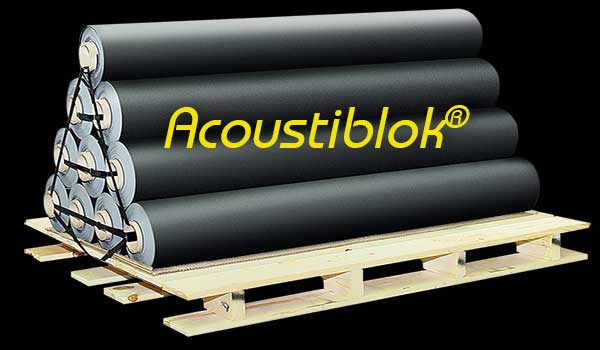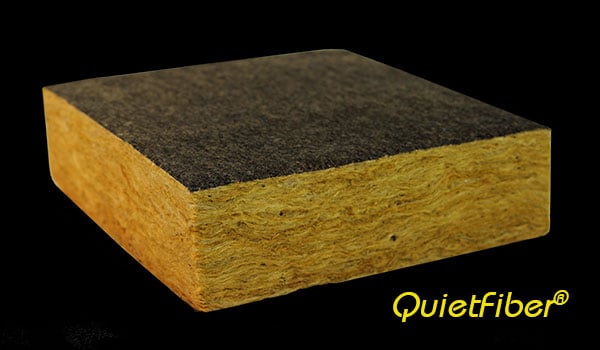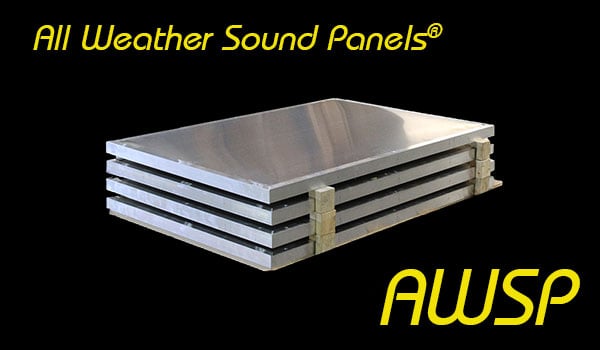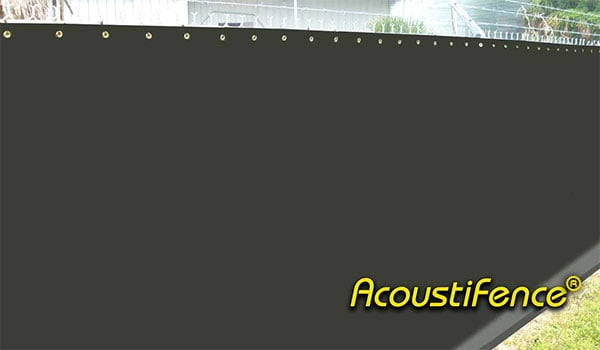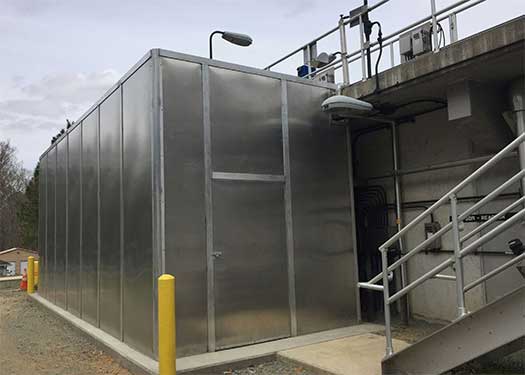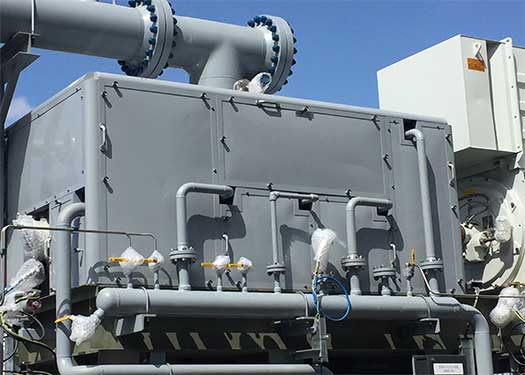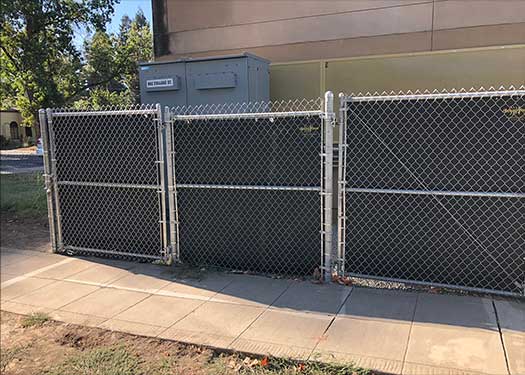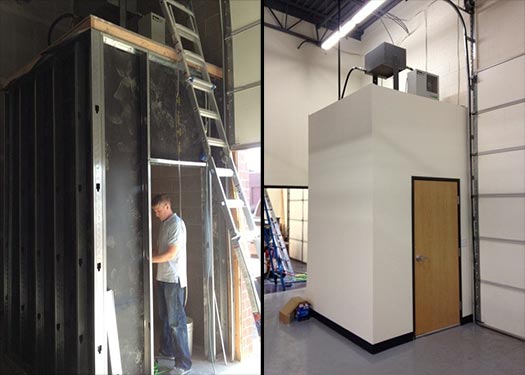Compressor Noise
Compressor noise is one of those noises that just hurt your ears when it turns on. The reason is this type of noise has a lot of intensity in the mid and high frequency ranges that humans typically are very sensitive to. The other problem is compressors are usually located near reflective boundaries such as concrete walls and floors. Sometimes they may be very close to the sides of buildings that can also act as huge reflective plains. When compressors are close to areas like I’ve described, the location only amplifies the sound pressure level (SPL) of the noise itself.
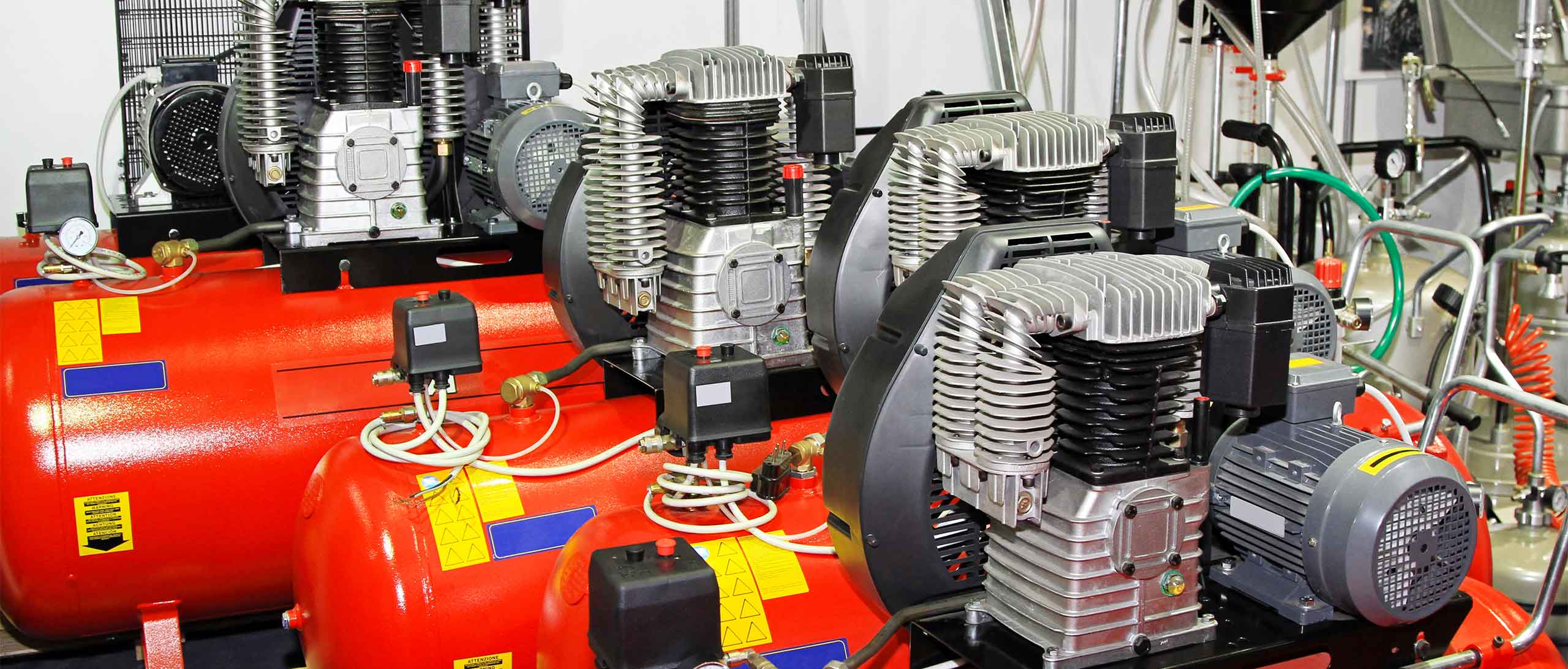
Compressor Noise Solutions
Acoustiblok has the answer for the noise coming from your compressor! IAWSP’s, QF2, & AF-6 are all products that can aid in the mitigation of compressor noise. If your problem is outside, our patented IAWSP’s are the premium solution in terms of performance and longevity. They’re all aluminum construction is sustainable, water resistant, and they have an NRC of 1.0 and an STC of 29. This means they absorb sound and also block it from traveling to the other side of the IAWSP. They do all this in just a 2” thick panel.
If you’re on a tighter budget, our award winning AF6 (Acoustifence) fits the bill. Acoustifence is a 1/8” thick barrier that comes in 6’ heights, and is 30’ long. It can have engineered grommets when ordered and you simply strap it to an existing or new fence, (installation method and techniques should be handled by a professional contractor to prevent damage due to improper installation). This typically can reduce as much as 6-10dBa from one side to another of the AF6.
Should your compressor be inside a garage or shop, QF2 (Quiet Fiber 2”) is the material of choice to reduce the noise level around the compressor. QF2 is extremely easy to install yourself on walls around the compressor. QF2 reduces reflection buildup in the space and reduces boundary effects of surrounding walls that in turn create a reduction in noise level due to the compressor running.
Please feel free to contact us to speak with a compressor specialist.


